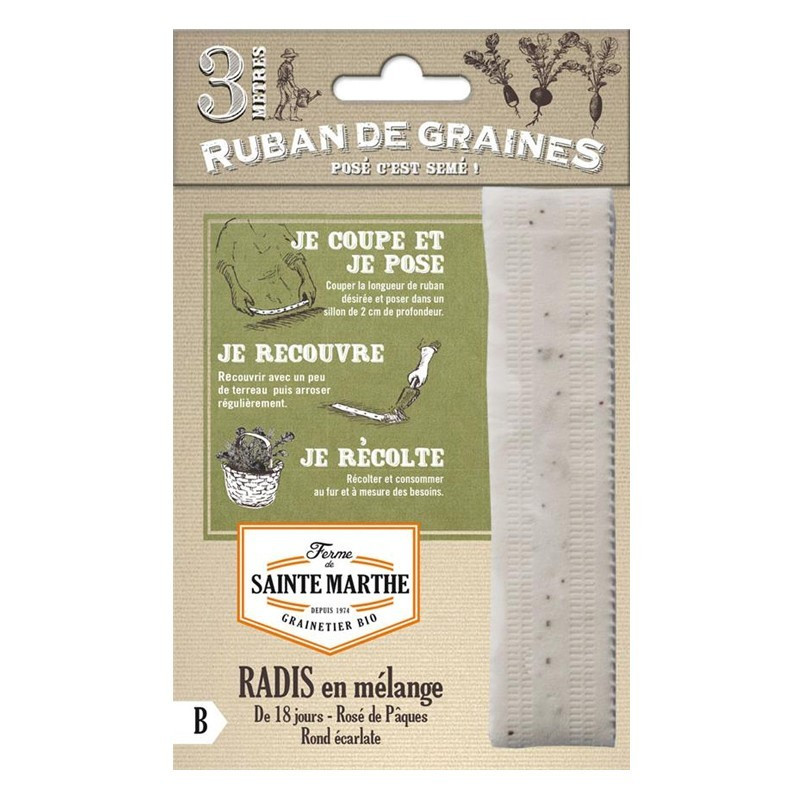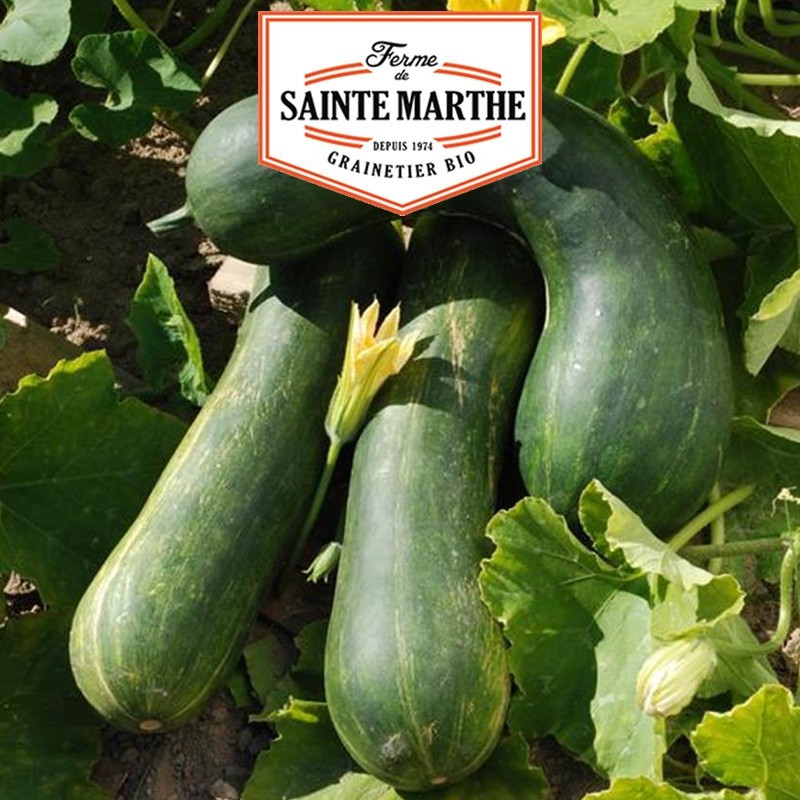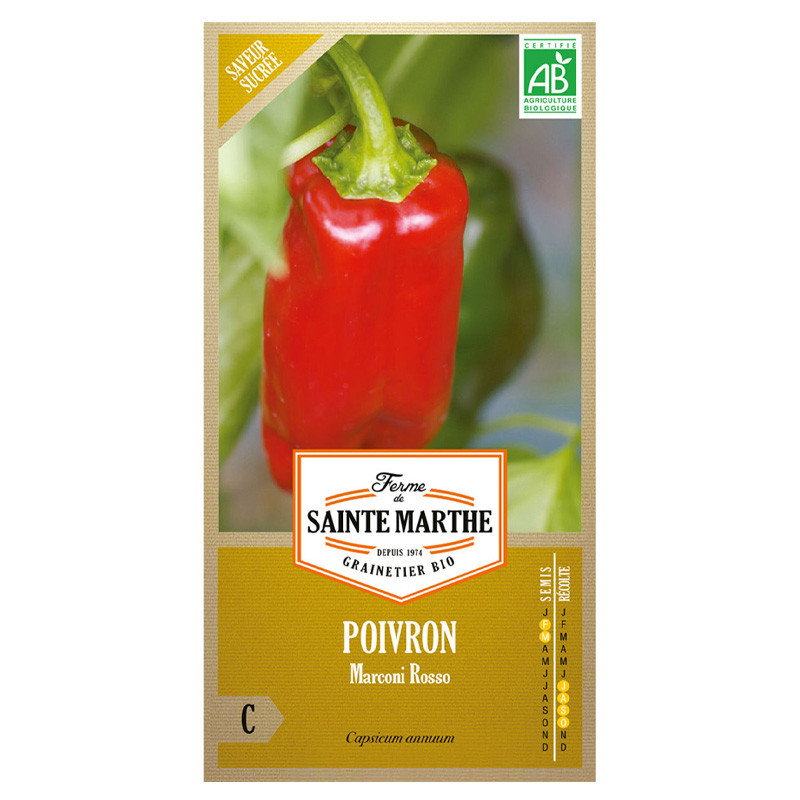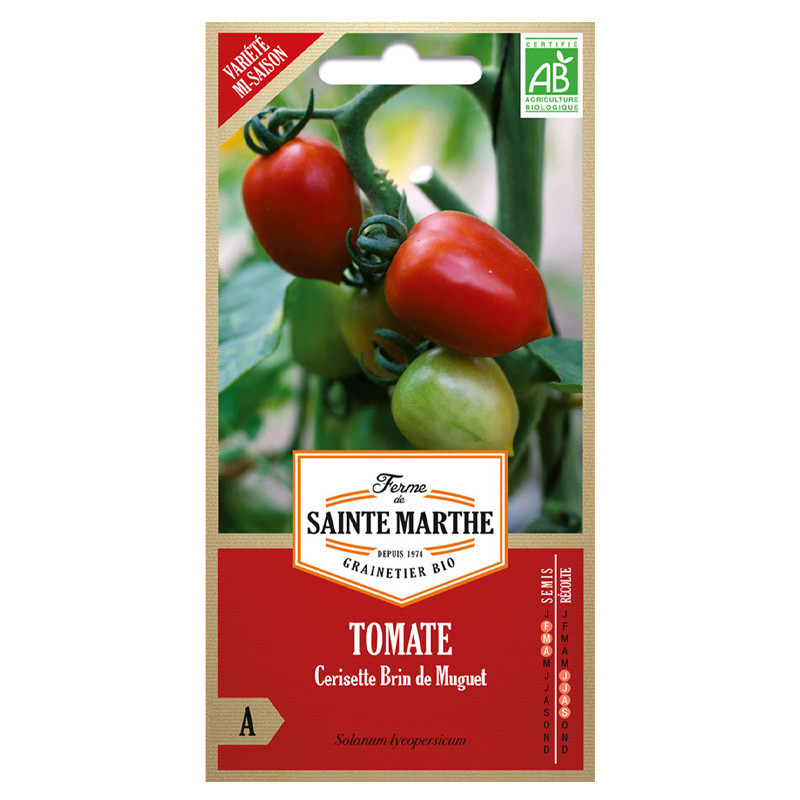
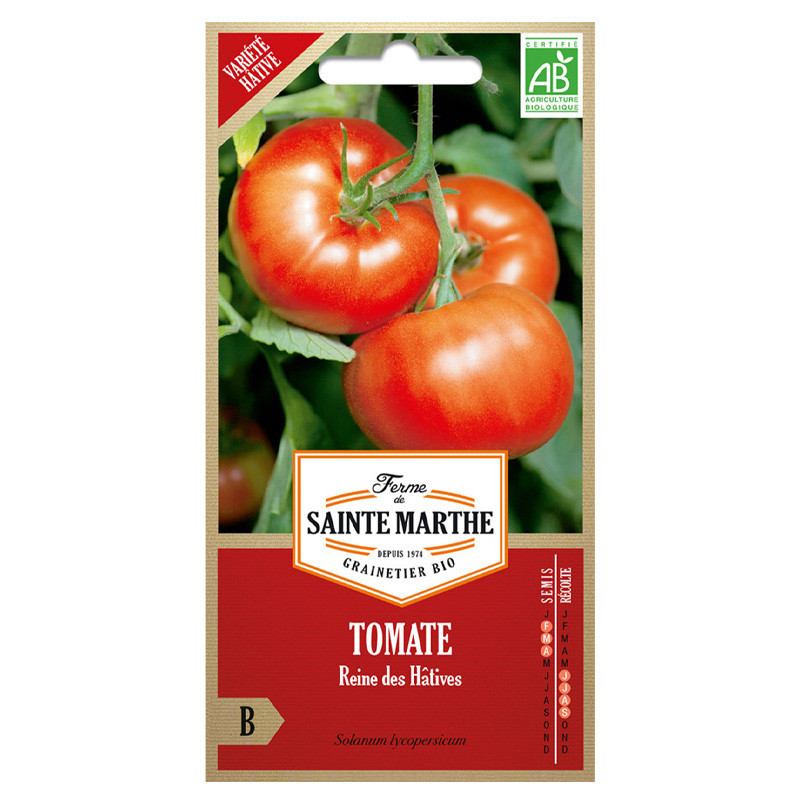


Tomate Reine des Hâtives - 50 seeds - AB - La ferme Sainte Marthe
Indoor Discount offers you quality seeds, carefully selected to guarantee rapid germination and vigorous plants
Data sheet
-
TypeSeeds
Get quality results with our selection of seeds!
Reine des Hâtives" tomato seeds enable you to grow an early variety of tomato, known for its ability to produce fruit quickly, even in cooler climates. They are generally small to medium-sized, with juicy flesh and delicious flavor. To grow "Reine des Hâtives" tomatoes successfully, you can start by sowing the seeds indoors, before the last expected frost. Use cups or pots filled with light, fertile potting soil. Once the plants have developed a few leaves and all risk of frost has passed, they can be transplanted to the garden or to larger containers.
Reine des Hâtives" tomatoes prefer well-drained soil rich in organic matter, as well as sunny exposure to develop properly. Be sure to keep the soil evenly moist by watering regularly, especially during periods of active growth and warm weather. It's also important to support tomato plants as they grow, using stakes or cages to prevent fruit from dragging on the ground and rotting. Queen of the Early" tomatoes can be harvested once they have reached full maturity and come off easily. Use a sharp knife to cut them carefully. Reine des Hâtives" tomatoes are delicious eaten fresh, in salads and sandwiches, or used in a variety of cooked dishes. Their ability to ripen quickly makes them an excellent choice for gardeners seeking an early harvest. Enjoy their delicious flavor throughout the growing season.
Organically grown (AB)
Good to know:
Sowing: February / April
Harvest: June / SeptemberThe Tomate Reine des Hâtives, an old-fashioned variety, stands out for its earliness, ripening in just 42 to 55 days.
It produces small, flattened red fruits weighing between 60 and 110 g, with a diameter of between 5 and 8 cm. Their yellowish collar is discreetly ribbed. Their dense, sweet flesh makes them a good-quality tomato.
Presented at the 1900 Universal Exhibition as the most productive and earliest of all tomatoes, the Reine des Hâtives is ideal for salads, garnishes and preserves.
To sow the Reine des Hâtives tomato, favour the months of February to April. Opt for cups or a heated greenhouse, with fine potting soil, and maintain a constant temperature of at least 20°C to ensure optimal germination. Bury the seeds about 1 cm deep, then water lightly to keep the potting soil moist, without soaking it. Place the cups near a window for good light exposure.
When the plants are 12 to 15 cm tall and there's no risk of frost, transplant them into rich, loose, healthy soil, spacing them 70 cm between rows and 50 cm apart on the row, in a sunny spot. Install stakes to support the growth of the plants and water abundantly at the base once a week to prevent disease.
When it comes to pruning tomato plants, opinion is divided. Some gardeners opt to remove suckers to increase fruit size and earliness, while others prefer to let the plants develop naturally. You can also lead the plants on two strands by removing all the suckers after pinching the plant 20 cm from the ground.
Reine des Hâtives tomatoes can be harvested 4 to 5 months after sowing.
The main enemies of tomatoes are mildew and apical necrosis. To prevent downy mildew, protect your plants from frequent rain or use a Bordeaux mixture-based treatment. As for apical necrosis, ensure regular, abundant watering to avoid irregularities in water supply.
Information:
- Height: 150 to 200 cm
- Color: Red
- Life cycle: Annual
- Type: Reproducible seeds
- Plant habit: Determinate
- Soil: All types of soil
- Germination temperature: 20 to 25 °C
- Sowing depth: Equal to seed size
- Sowing technique: In pots
- Sowing container: Cup
- Watering frequency: Moderate / Daily
- Exposure: Sun
- Foliage: Deciduous
- Hardiness: Frosty
- Planting: In the ground
- Spacing: 70 cm
- Seed emergence: 7 to 10 days
- Sowing to harvest: 42 to 55 days-
-
TypeSeeds
-
Trier ses déchetsNos emballages et/ou nos produits peuvent faire l’objet d’une consigne de tri. Plus d’info.
-

